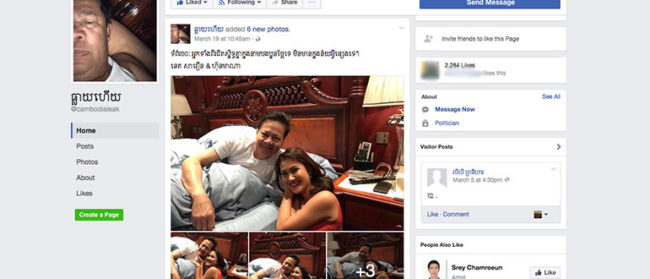Malaysia’s House of Representatives voted to extend the law for 5 years amid a debate over whether it’s a necessary tool to combat terrorism or an aggressive assault on civil liberties

Malaysian authorities will be allowed to detain individuals suspected of committing “security offences” for 28 days without charge until at least mid-2022, after the House of Representatives, or Dewan Rakyat, voted in favour of extending a controversial security law last night.
Deputy Home Minister Nur Jazlan Mohamed proposed the extension of the sub-section in the country’s Security Offences (Special Measures) Act 2012 (SOSMA), ostensibly to give police more time to carry out thorough investigations.
The house passed the motion with 93 votes in favour and 77 against.
Nur Jazlan argued that while the maximum detention period was 28 days, drawn-out bureaucratic processes meant police really only had 21 days to carry out investigations.
Summarizing his case in the house, the deputy home minister said 989 people had been detained under the act from July 31, 2012, when it was adopted, to Feb 22 this year. A total of 363 were released and 139 are facing trial, while 502 people have been convicted, Nur Jazlan noted, numbers that he said demonstrated the law’s success in fighting terrorism.
Rights groups and other prominent voices within civil society, however, have criticised implementation of the law, which stipulates that no one is to be arrested “solely for his political belief or political activity,” as a means of clamping down on dissenting political voices.
On 18 September 2015, Malaysian authorities prevented Khairuddin Abu Hassan from boarding a flight to the US after he provided information about the 1MDB corruption scandal to foreign governments. The court ordered his release five days later, but Malaysian authorities detained him under SOSMA for 28 days to investigate his alleged “sabotage against the state”.
In November 2016, Maria Chin Abdullah, chair of the Coalition for Clean and Fair Elections (Bersih), a group of NGOs critical of the government, was targeted under SOSMA. She was detained the night before a major Bersih demonstration so that police could investigate alleged activity detrimental to parliamentary democracy. She was held in solitary confinement for 11 days.
“Malaysian officials evidently view SOSMA as a shortcut to harass and silence human rights activists and anti-corruption campaigners with prolonged detention without charge,” said Phil Robertson, deputy Asia director of Human Rights watch, in a statement published on their website prior to the bill’s extension.
“Parliament should uphold basic rights and let these detention provisions lapse, then follow up with revisions or repeal of the entire abusive law.”
Malaysia extends controversial security law that allows for 28 days of detention without charge
Malaysia’s House of Representatives voted to extend the law for 5 years amid a debate over whether it’s a necessary tool to combat terrorism or an aggressive assault on civil liberties Bersih Chairman Maria Chin Abdullah looks on during the Bersih 5.0 rally press conference at Kuala Lumpur, Malaysia, 17 November 2016. She was arrested and detained under SOSMA the following day. Photo:EPA/Fazry Ismail

